Strictly Personal
Globalisation now comes wearing Ankara, Kitenge; has dreadlocks by Charles Onyango-Obbo
Published
2 years agoon
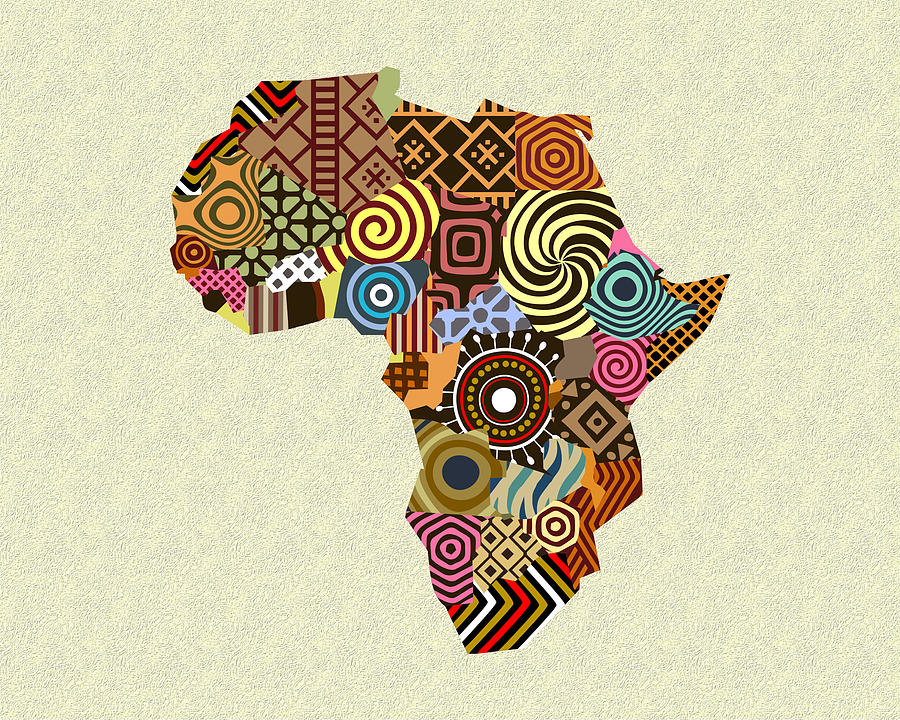
With Donald Trump’s “America First”, Brexit, the Covid-19 pandemic and now the fall-out from the Russian invasion of Ukraine, talk of “deglobalisation” has been getting louder and louder.
Deglobalisation paints the world as getting less connected; countries more tribal; hostility to open borders; less regional cooperation; and the decline of global commerce.
Last week, the world elite and internationalists met in Davos, Switzerland, after a two-year Covid-induced hiatus, for the World Economic Forum. Deglobalisation was the big talk.
But, perhaps, not so fast. What is dying — or is dead — is the globalisation that a very western-centric view of the world saw.
Built around fiat money, the US dollar, with the world’s goods built and distributed by giant corporations, global finance funnelled from a few priests of high finance like Goldman Sachs and Deutsche Bank, with wealth redistributed through stock exchanges from New York, Johannesburg, to Nairobi, and the men and women who keep eyes on its pulse flying around the world First Class or on private jets to international conferences explaining its great works and setting new agenda.
But there was always another globalised world outside this, less glamorous and with no billionaires in it. And even in the multitude of recent crises, a new one has continued to emerge.
During the two worst years of the pandemic, even as Covid-19 tore apart the old order, it was always interesting to watch Dr Anthony Fauci, director of the US National Institute of Allergy and Infectious Diseases and the chief medical adviser to US President Joe Biden; and South African infectious disease scientist Salim Abdool Karim, chair of the South African Ministerial Advisory Committee on Covid-19.
Fauci would often talk of the trends and learnings he was getting talking to experts from South Africa to Asia. Karim would speak of his conversation with Fauci, some obscure European country, and peers in Latin America.
While the world was locked down during the height of Covid-19, and the fight over vaccine apartheid and hoarding by rich nations marred the beginnings of recovery, the world also globalised around one of its most extensive information and knowledge-sharing efforts ever around the virus. Nowhere was that more apparent than in the work that the Addis Ababa-headquartered Africa CDC, which was our pan-African Covid-19 czar, did — from sourcing and distributing PPE to the frustrating struggle to get vaccines into African arms.
While sections of fiat money were walled off, decentralised, albeit risky, currencies flourished, and in parts of Africa uptake of crypto increased by over 300 per cent.
Non-fungible tokens (NFTs) became huge with African creatives. An early mover into the NFT market, Nigerian record label owner Don Jazzy, worked with a digital artist to add background sound to art, and in 10 minutes sold out and made about $300,000. Creative Africa invaded NFTs in a frenzy.
As we cowed from the virus, the global climate justice, Black Lives Matter, and fair trade movements, to name a few, soared, creating easily the world’s most networked communities ever.
Globalisation is not dead. It’s just that it no longer arrives in private jets with unlimited credit cards. It shows up in jeans, rucksacks, Ankara dresses, Kitenge shirts, and possibly in dreadlocks.
Charles Onyango-Obbo is a journalist, writer, and curator of the “Wall of Great Africans”. Twitter@cobbo3
You may like
-


Air Peace, capitalism and national interest, By Dakuku Peterside
-


This is chaos, not governance, and we must stop it, By Tee Ngugi
-


Off we go again with public shows, humbug and clowning, By Jenerali Uliwengu
-


How patriarchy underpins gender violence today, By Tee Ngugi
-


Help! There’s a dangerous, secret plot to save the EAC from imminent death, By Charles Onyango-Obbo
-
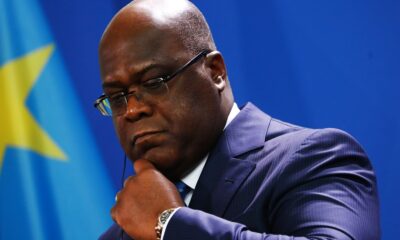

How South Africa, US elections could shape Tshisekedi’s bread in Kinshasa, By Charles Onyango-Obbo
Strictly Personal
Air Peace, capitalism and national interest, By Dakuku Peterside
Published
6 days agoon
April 16, 2024
Nigerian corporate influence and that of the West continue to collide. The rationale is straightforward: whereas corporate activity in Europe and America is part of their larger local and foreign policy engagement, privately owned enterprises in Nigeria or commercial interests are not part of Nigeria’s foreign policy ecosystem, neither is there a strong culture of government support for privately owned enterprises’ expansion locally and internationally.
The relationship between Nigerian businesses and foreign policy is important to the national interest. When backing domestic Nigerian companies to compete on a worldwide scale, the government should see it as a lever to drive foreign policy, and national strategic interest, promote trade, enhance national security considerations, and minimize distortion in the domestic market as the foreign airlines were doing, boost GDP, create employment opportunities, and optimize corporate returns for the firms.
Admitted nations do not always interfere directly in their companies’ business and commercial dealings, and there are always exceptions. I can cite two areas of exception: military sales by companies because of their strategic implications and are, therefore, part of foreign and diplomatic policy and processes. The second is where the products or routes of a company have implications for foreign policy. Air Peace falls into the second category in the Lagos – London route.
Two events demonstrate an emerging trend that, if not checked, will disincentivize Nigerian firms from competing in the global marketplace. There are other notable examples, but I am using these two examples because they are very recent and ongoing, and they are typological representations of the need for Nigerian government backing and support for local companies that are playing in a very competitive international market dominated by big foreign companies whose governments are using all forms of foreign policies and diplomacy to support and sustain.
The first is Air Peace. It is the only Nigerian-owned aviation company playing globally and checkmating the dominance of foreign airlines. The most recent advance is the commencement of flights on the Lagos – London route. In Nigeria, foreign airlines are well-established and accustomed to a lack of rivalry, yet a free-market economy depends on the existence of competition. Nigeria has significantly larger airline profits per passenger than other comparable African nations. Insufficient competition has resulted in high ticket costs and poor service quality. It is precisely this jinx that Air Peace is attempting to break.
On March 30, 2024, Air Peace reciprocated the lopsided Bilateral Air Service Agreement, BASA, between Nigeria and the United Kingdom when the local airline began direct flight operations from Lagos to Gatwick Airport in London. This elicited several reactions from foreign airlines backed by their various sovereigns because of their strategic interest. A critical response is the commencement of a price war. Before the Air Peace entry, the price of international flight tickets on the Lagos-London route had soared to as much as N3.5 million for the economy ticket. However, after Air Peace introduced a return economy class ticket priced at N1.2 million, foreign carriers like British Airways, Virgin Atlantic, and Qatar Airways reduced their fares significantly to remain competitive.
In a price war, there is little the government can do. In an open-market competitive situation such as this, our government must not act in a manner that suggests it is antagonistic to foreign players and competitors. There must be an appearance of a level playing field. However, government owes Air Peace protection against foreign competitors backed by their home governments. This is in the overall interest of the Nigerian consumer of goods and services. Competition history in the airspace works where the Consumer Protection Authority in the host country is active. This is almost absent in Nigeria and it is a reason why foreign airlines have been arbitrary in pricing their tickets. Nigerian consumers are often at the mercy of these foreign firms who lack any vista of patriotism and are more inclined to protect the national interest of their governments and countries.
It would not be too much to expect Nigerian companies playing globally to benefit from the protection of the Nigerian government to limit influence peddling by foreign-owned companies. The success of Air Peace should enable a more competitive and sustainable market, allowing domestic players to grow their network and propel Nigeria to the forefront of international aviation.
The second is Proforce, a Nigerian-owned military hardware manufacturing firm active in Rwanda, Chad, Mali, Ghana, Niger, Burkina Faso, and South Sudan. Despite the growing capacity of Proforce in military hardware manufacturing, Nigeria entered two lopsided arrangements with two UAE firms to supply military equipment worth billions of dollars , respectively. Both deals are backed by the UAE government but executed by UAE firms.
These deals on a more extensive web are not unconnected with UAE’s national strategic interest. In pursuit of its strategic national interest, India is pushing Indian firms to supply military equipment to Nigeria. The Nigerian defence equipment market has seen weaker indigenous competitors driven out due to the combination of local manufacturers’ lack of competitive capacity and government patronage of Asian, European, and US firms in the defence equipment manufacturing sector. This is a misnomer and needs to be corrected.
Not only should our government be the primary customer of this firm if its products meet international standards, but it should also support and protect it from the harsh competitive realities of a challenging but strategic market directly linked to our national military procurement ecosystem. The ability to produce military hardware locally is significant to our defence strategy.
This firm and similar companies playing in this strategic defence area must be considered strategic and have a considerable place in Nigeria’s foreign policy calculations. Protecting Nigeria’s interests is the primary reason for our engagement in global diplomacy. The government must deliberately balance national interest with capacity and competence in military hardware purchases. It will not be too much to ask these foreign firms to partner with local companies so we can embed the technology transfer advantages.
Our government must create an environment that enables our local companies to compete globally and ply their trades in various countries. It should be part of the government’s overall economic, strategic growth agenda to identify areas or sectors in which Nigerian companies have a competitive advantage, especially in the sub-region and across Africa and support the companies in these sectors to advance and grow to dominate in the African region with a view to competing globally. Government support in the form of incentives such as competitive grants ,tax credit for consumers ,low-interest capital, patronage, G2G business, operational support, and diplomatic lobbying, amongst others, will alter the competitive landscape. Governments and key government agencies in the west retain the services of lobbying firms in pursuit of its strategic interest.
Nigerian firms’ competitiveness on a global scale can only be enhanced by the support of the Nigerian government. Foreign policy interests should be a key driver of Nigerian trade agreements. How does the Nigerian government support private companies to grow and compete globally? Is it intentionally mapping out growth areas and creating opportunities for Nigerian firms to maximize their potential? Is the government at the domestic level removing bottlenecks and impediments to private company growth, allowing a level playing field for these companies to compete with international companies?
Why is the government patronising foreign firms against local firms if their products are of similar value? Why are Nigerian consumers left to the hands of international companies in some sectors without the government actively supporting the growth of local firms to compete in those sectors? These questions merit honest answers. Nigerian national interest must be the driving factor for our foreign policies, which must cover the private sector, just as is the case with most developed countries. The new global capitalism is not a product of accident or chance; the government has choreographed and shaped it by using foreign policies to support and protect local firms competing globally. Nigeria must learn to do the same to build a strong economy with more jobs.
Strictly Personal
This is chaos, not governance, and we must stop it, By Tee Ngugi
Published
2 weeks agoon
April 10, 2024
The following are stories that have dominated mainstream media in recent times. Fake fertiliser and attempts by powerful politicians to kill the story. A nation of bribes, government ministries and corporations where the vice is so routine that it has the semblance of policy. Irregular spending of billions in Nairobi County.
Billions are spent in all countries on domestic and foreign travel. Grabbing of land belonging to state corporations, was a scam reminiscent of the Kanu era when even public toilets would be grabbed. Crisis in the health and education sectors.
Tribalism in hiring for state jobs. Return of construction in riparian lands and natural waterways. Relocation of major businesses because of high cost of power and heavy taxation. A tax regime that is so punitive, it squeezes life out of small businesses. Etc, ad nauseam.
To be fair, these stories of thievery, mismanagement, negligence, incompetence and greed have been present in all administrations since independence.
However, instead of the cynically-named “mama mboga” government reversing this gradual slide towards state failure, it is fuelling it.
Alternately, it’s campaigning for 2027 or gallivanting all over the world, evoking the legend of Emperor Nero playing the violin as Rome burned.
A government is run based on strict adherence to policies and laws. It appoints the most competent personnel, irrespective of tribe, to run efficient departments which have clear-cut goals.
It aligns education to its national vision. Its strategies to achieve food security should be driven by the best brains and guided by innovative policies. It enacts policies that attract investment and incentivize building of businesses. It treats any kind of thievery or negligence as sabotage.
Government is not a political party. Government officials should have nothing to do with political party matters. They should be so engaged in their government duties that they literally would not have time for party issues. Government jobs should not be used to reward girlfriends and cronies.
Government is exhausting work undertaken because of a passion to transform lives, not for the trappings of power. Government is not endless campaigning to win the next election. To his credit, Mwai Kibaki left party matters alone until he had to run for re-election.
We have corrupted the meaning of government. We have parliamentarians beholden to their tribes, not to ideas.
We have incompetent and corrupt judges. We have a civil service where you bribe to be served. Police take bribes to allow death traps on our roads. We have urban planners who plan nothing except how to line their pockets. We have regulatory agencies that regulate nothing, including the intake of their fat stomachs.
We have advisers who advise on which tenders should go to whom. There is no central organising ethos at the heart of government. There is no sense of national purpose. We have flurries of national activities, policies, legislation, appointments which don’t lead to meaningful growth. We just run on the same spot.
Tee Ngugi is a Nairobi-based political commentator
EDITOR’S PICK


UN signs MoU with Kenya’s Konza Technopolis
The United Nations has signed a Memorandum of Understanding (MoU) with Kenya’s Konza Technopolis that will provide a wide range...


Ghana mourns as top gospel music icon Koda passes away
The Ghanaian entertainment industry has, once again, been thrown into mourning following the death of renowned gospel musician, Kofi Owusu...


South African club admits they can’t keep Nwabali
Chairman of South African club side, Chippa United, Siviwe ‘Chippa’ Mpengesi, has given up on retaining the services of Super...


Chinsali youth advocates broadening of access to information to impact rural areas
Joseph Mulenga, a 24-year-old carpenter from Chinsali District in Muchinga Province, has spoken on the necessity of broadening access to...
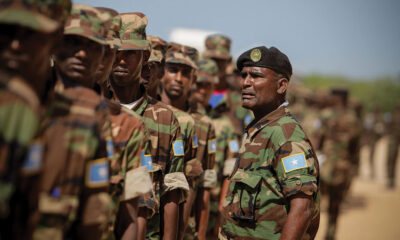

African leaders seek change in fight against terrorism at Nigerian summit
At a security summit in Nigeria, African leaders have called for a revamp of institutions that fight violent extremism on...


Visually-impaired community calls for institutional support to overcome challenges of access to information
Machisa Zimba, Coordinator of Community Based Inclusive Development Network (CBID) for the visually impaired, sheds light on the challenges hindering...
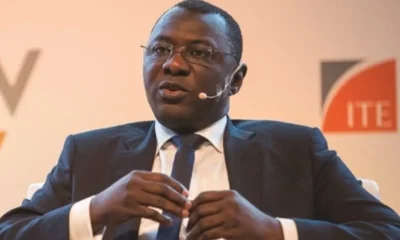

Ghana’s finance minister anticipates debt restructuring MoU with lenders
Ghana’s Finance Minister has announced that the country’s two main creditors will send him a draft Memorandum of Understanding (MoU)...
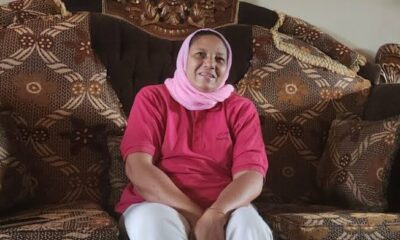

Differently-abled person speaks on challenges impacting freedom of expression in rural areas
Josephine Diase, a prominent figure in the Disability Movement, sheds light on the obstacles confronting people with disabilities in rural...


Behind the News: All the backstories to our major news this week
Over the past week, there were many important stories from around the African continent, and we served you some of...


Binance executive who escaped from Nigeria arrested in Kenya
An executive director of cryptocurrency firm, Binance Holdings Limited, Nadeem Anjarwalla, who escaped from detention in Nigeria in March, has...
Trending
-

 Metro2 days ago
Metro2 days agoYoruba secessionist group seeks exit from Nigeria, writes open letter to Tinubu
-

 Tech1 day ago
Tech1 day agoKenya’s agri-tech startup Pula raises $20m funding for farmers’ insurance
-

 Sports1 day ago
Sports1 day agoKenya’s Peres Jepchirchir fulfils promise of breaking world record at London Marathon
-
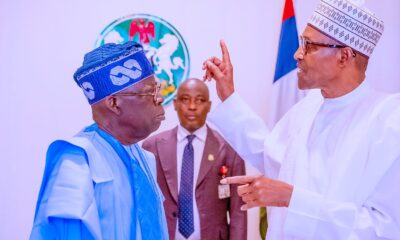
 VenturesNow2 days ago
VenturesNow2 days agoNigeria: Unlike Buhari, Tinubu’s govt has not borrowed from the central bank— Finance Minister


